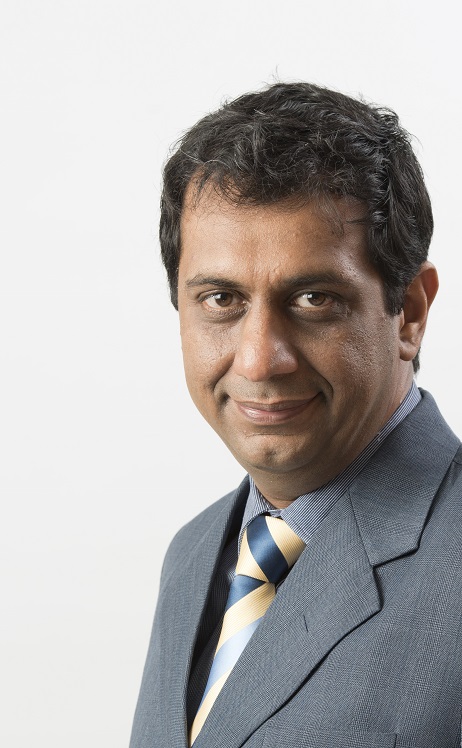Fund manager of India’s one of best performing equity funds - ICICI Prudential Focused Bluechip Fund, Manish Gunwani, Senior Fund Manager, ICICI Prudential Mutual Fund, believes that fund managers can mitigate risk in closed end equity funds by booking profits and distributing dividends to investors.
 What are the key risks to market currently?
What are the key risks to market currently?
We are very positive on the markets from a three year perspective. Given the strong recovery prospects, we can expect earnings growth of companies to be in the range of 17- 20%. Over a three year period, we can expect a CAGR of 13-15% from the market.
On the global front, events like geopolitical risks and volatility in crude oil prices may affect FIIs flows into the Indian market. However, it may cause short term correction only. Given the fall in oil prices, increase in DII flows and strong macro-economic data, the market would remain quite upbeat for at least for three years.
What is your reading about the current state of the Indian economy? What global cues are you looking out for?
If you see the three important barometers of the Indian economy i.e. GDP growth, inflation and current account deficit (CAD), you will find that these are going in the right direction. We expect inflation to come down. Due to a fall in commodity prices, CAD is likely to be in range of 0-1%. We expect that the country’s GDP will improve in the next three years.
As I mentioned earlier, a few global events like elections in Greece, slowdown in Eurozone and China are likely to affect India’s growth story in the short run. However, from a long term perspective, India is in a better position.
Which sectors do you think will play out well in the next three to five years?
Today, the market is very balanced in terms of the risk-reward equation. Both large cap v/s mid cap and cyclical v/s defensive are balanced at the moment. Obviously, in an improving macro-economic scenario, domestic cyclical sectors will have an edge over other sectors. From a three year perspective, the domestic cyclical is bit more attractive than the rest of the market. Also, a few defensive stocks in IT and FMCG are available at an attractive price.
How is your new scheme - ICICI Prudential Growth Fund Series 7 different from other series of growth funds and other large & mid cap funds within your fund house? What is the investment strategy of this fund? Do you think there would be some amount of overlap in the portfolios of these funds?
There are three differentiating factors. Firstly, it will have a fairly concentrated portfolio of 20 stocks. Secondly, the fund will have 80% exposure to large cap and mid cap stocks and 20% to stock options. The latter part is the unique feature of this fund as it differentiates it from other equity offerings in the closed end equity fund category. To maximize returns, the fund will use call and put option whenever the market is volatile.
Obviously, the large cap holding of the fund will have overlap with other existing funds as the large cap space provides limited opportunity. However, chances of overlap is quite less in the mid-cap space.
What are the risk mitigation strategies you will deploy in this fund?
We plan to book some profits and distribute it as dividend. Markets will remain volatile. Hence, by booking profits, we will mitigate the risk to a greater extent. We have already given dividends under our both growth and value series. It’s central to our risk management strategy that if we get good returns we will book profit and distribute dividends. Also, when we reach near maturity, we will increase exposure to large cap stocks which are more liquid and comparatively less risky than mid-cap stocks.
Some of the closed end funds launched in 2007 did not live up to their expectations. Do you think the situation is different now? If so, why?
That’s the reason we believe in distributing dividend in our closed end equity schemes. You can call it a learning from the past.
The first phase was obviously good in 2007. However, the problem started when a few fund managers didn’t reduce exposure to overvalued stocks. The fund managers should ideally reduce exposure to such stocks by booking profits and distribute it as dividend or buy other stocks at an attractive valuation.
Also, most of the closed end funds in 2007 were thematic funds which are more risky than the recent offerings in the close end equity fund category. All our closed end schemes have a diversified mandate and follow a particular style i.e. value or growth.
From a fund management perspective, what are the challenges in managing a close end small/mid cap fund vis-à-vis an open end small/mid cap fund?
The philosophy of both funds are different. While closed end equity funds focus on delivering absolute returns, their open end peers are benchmark centric. Secondly, the average market cap of underlying stocks in open end funds are much higher than the closed end fund because of their size.
In closed end funds, we look at stocks which can deliver good absolute returns over three or five year period. Also, the small size of closed end funds provide flexibility to fund managers to manoeuvre the portfolio.
What worked in favour in ICICI Prudential blue chip fund? How do you identify blue chips?
We pick stocks on the basis of three parameters i.e. business model, valuation and management. We follow a bottom up strategy.
We have an experienced team of analysts who have seen various market cycles. As a result, we are able to identify the best stocks within a particular sector which have the capability to deliver better risk-adjusted returns. We don’t deviate too much from our mandate.



